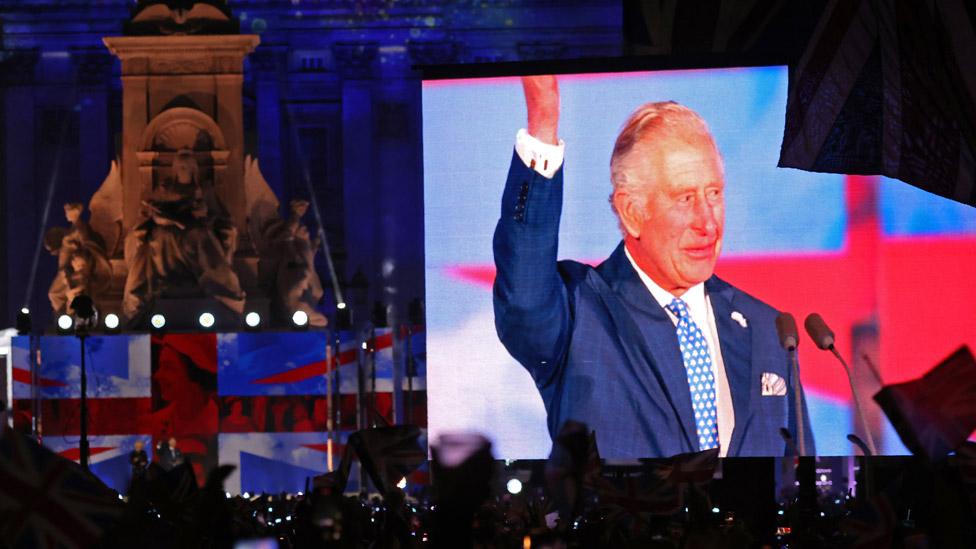Andrew Lloyd Webber piece among new coronation music
- Published
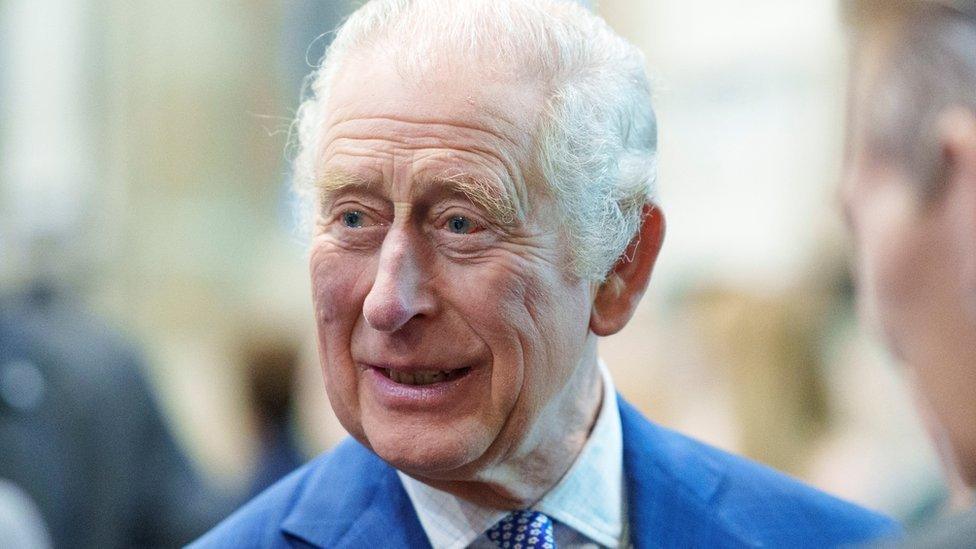
The coronation music has been the personal choice of King Charles
The coronation service of King Charles will have 12 newly-commissioned pieces of music, including a composition by Andrew Lloyd Webber.
The King has personally chosen the music for the ceremony at Westminster Abbey on 6 May.
Lord Lloyd-Webber said he wanted his new coronation anthem to reflect a "joyful occasion".
A gospel choir will sing and there will be Greek Orthodox music in memory of the King's father, Prince Philip.
The music will have a traditional tone with pieces from classical composers such as William Byrd, George Handel and Sir Edward Elgar.
But there has been a coronation theme of combining the modern with the ancient - and new music has been commissioned.
This includes a coronation march from Patrick Doyle, who has previously written a different kind of royal music, with the award-winning soundtrack for Sir Kenneth Branagh's movie version of Shakespeare's Henry V.
It still remains uncertain who will be invited to listen to the music in person - in particular, whether Prince Harry and Meghan, the Duchess of Sussex, will be in the congregation.
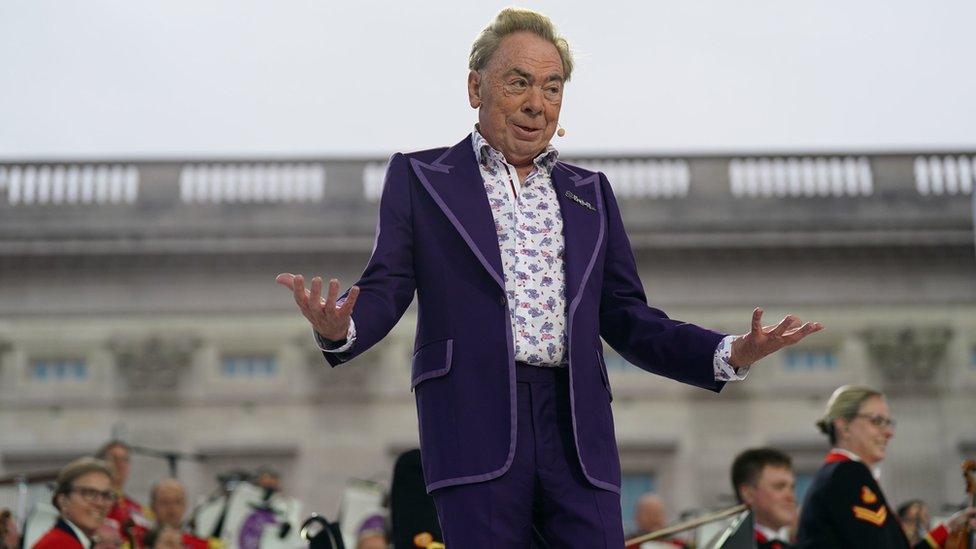
Composer Andrew Lloyd Webber took part in the Platinum Jubilee concert last year
Being crowned alongside the King will be Camilla, the Queen Consort, who earlier this week tested positive for Covid.
However, suggesting she was recovering, the 75-year-old Queen Consort is scheduled to be back carrying out engagements next week.
Camilla has avoided sensitivities about the crown she will be wearing, with the announcement last week that it would not include the Koh-i-Noor diamond, whose ownership has been disputed.
The new coronation music will include six pieces for orchestra, five choral works and a piece for the organ.
Lord Lloyd-Webber is writing an anthem based on the Biblical text of Psalm 98, that begins: "O sing unto the Lord a new song; for he hath done marvellous things."
The composer and theatre owner, aged 74 like the King, has had a long career writing popular musicals, such as The Phantom of the Opera and Cats.
Lord Lloyd-Webber, who retired from the House of Lords in 2017, has campaigned to support music and the arts.
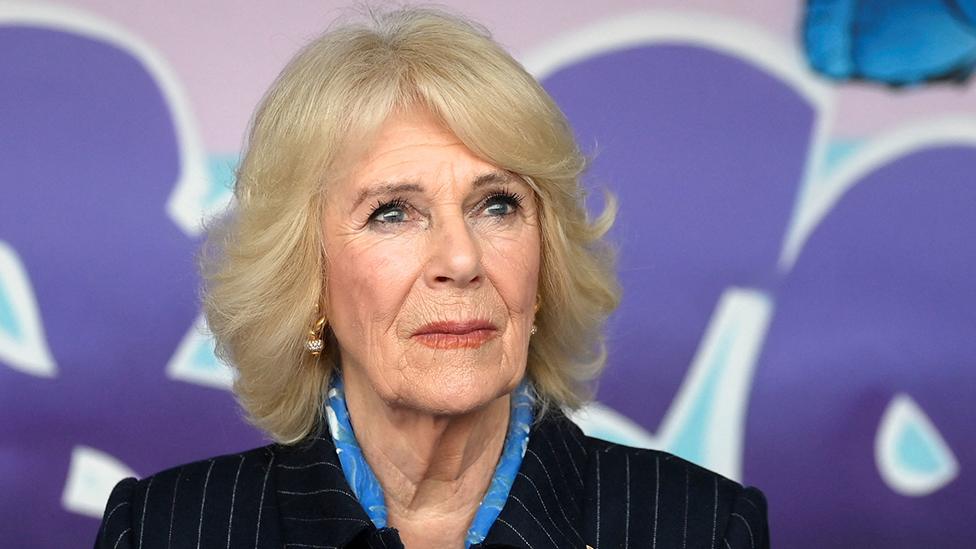
The Queen Consort is expected to be back carrying out engagements next week, after testing positive for Covid last week
The other composers chosen by the King to write new music are Iain Farrington, Sarah Class, Nigel Hess, Paul Mealor, Tarik O'Regan, Roxanna Panufnik, Shirley J. Thompson, Judith Weir, Roderick Williams and Debbie Wiseman.
There will be a "coronation orchestra" assembled and soloists will include Welsh opera singer Sir Bryn Terfel.
Part of the service will be sung in Welsh and Sir John Eliot Gardiner will conduct a programme of choral music.
At the moment when the King is acclaimed, the Latin call "Vivat" will be sung by choristers from Westminster School, as it has been for previous coronations, including the late Queen in 1953.
The coronation service will be held at Westminster Abbey, which last September heard new music commissioned for her funeral.
Some of that music had been commissioned from composers many years before, including Sir James MacMillan, who had been asked in 2011 to secretly write a piece of choral music.
Unable to attend rehearsals, the first time the composer ever heard the piece sung was watching the historic funeral on television.
As well as music at King Charles' coronation, there will be a concert the following evening at Windsor Castle, which promises to include world-famous headline acts.
What we know about the Coronation weekend so far:
Saturday 6 May: Coronation service in Westminster Abbey; coronation carriage procession; Buckingham Palace balcony appearance
Sunday 7 May: Concert and lightshow at Windsor Castle; Coronation Big Lunch street parties
Monday 8 May: Extra bank holiday; Big Help Out encouraging people to get involved in local volunteering
- Published14 February 2023
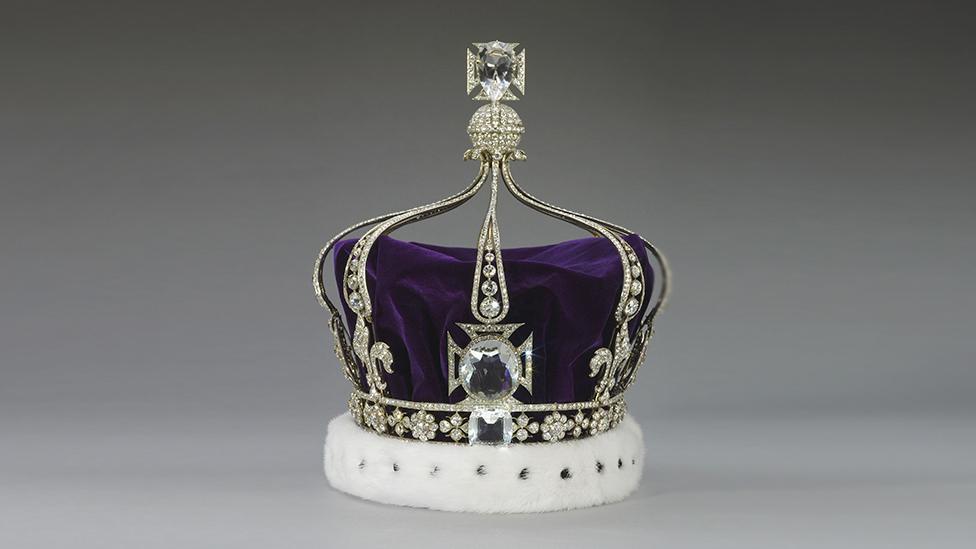
- Published2 May 2023
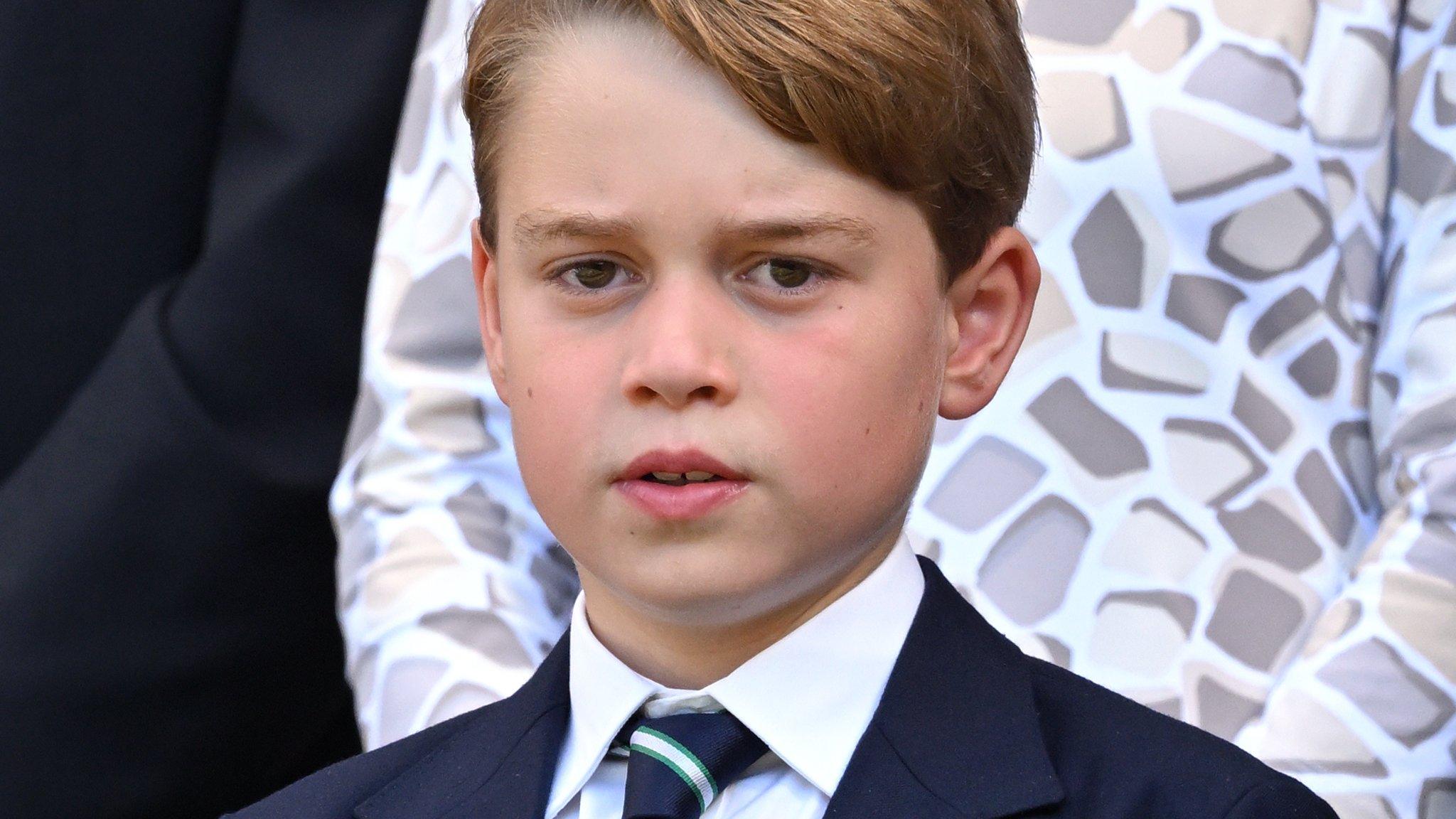
- Published10 February 2023
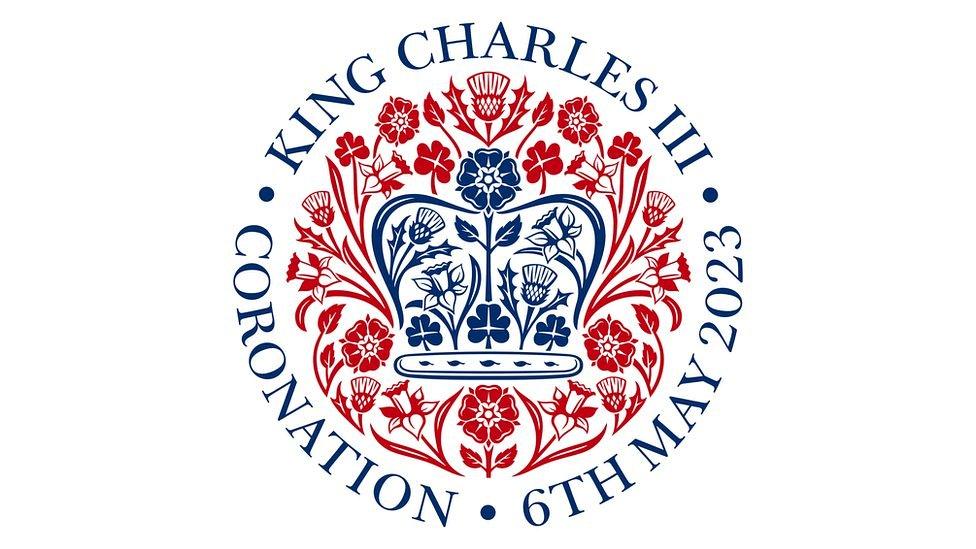
- Published10 February 2023
